Speakers
Future-Proofing Law: From rDNA to Robots
Friday, January 27 to Saturday, January 28, 2017
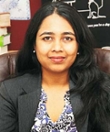
Chinmayi Arun
Centre for Communication Governance, National Law University Delhi
Chinmayi Arun is Executive Director of the Centre for Communication Governance at National Law University Delhi, where she is also an Assistant Professor of Law. She is a Faculty Associate of the Berkman Klein Centre at Harvard University. She has studied at the London School of Economics and Political Science, and NALSAR University of Law, and has taught at the West Bengal National University for Juridical Sciences, where she introduced seminar courses on regulatory theory and comparative communication regulation.
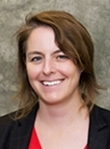
Jane Bambauer
The University of Arizona - James E. Rogers College of Law
Jane Bambauer is an Associate Professor of Law at the University of Arizona. Prof. Bambauer's research assesses the social costs and benefits of Big Data, and questions the wisdom of many well-intentioned privacy laws. Her articles have appeared in the Stanford Law Review, the Michigan Law Review, the California Law Review, and the Journal of Empirical Legal Studies. Professor Bambauer's own data-driven research explores biased judgment, legal education, and legal careers. She holds a B.S. in mathematics from Yale College and a J.D. from Yale Law School.
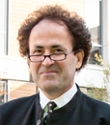
Mario Biagioli
UC Davis School of Law
Mario Biagioli is a Distinguished Professor of Law and Science and Technology Studies (STS), and Director of the Center for Science and Innovation Studies. At the Law School, he teaches courses on intellectual property in science, and on the history and philosophy of intellectual property.For more than a decade, Professor Biagioli has been studying problems of authorship and priority attribution in contemporary "Big Science," editing (with Peter Galison), Scientific Authorship (Routledge, 2003). He has subsequently published on the history of patenting in the sciences, the development of specifications requirements, the peer review of patent applications. With Pater Jaszi and Martha Woodmansee, he has edited Making and Unmaking Intellectual Property (Chicago, 2011) and is working on The Author as Vegetable, a book on the role of environmental concepts in contemporary discussions of the knowledge commons. Other current research interests include definitions of patentable subject matter and the role of secrecy in science.

Dan L. Burk
UCI Law
Dan L. Burk is Chancellor’s Professor of Law at the University of California, Irvine, where he is a founding member of the law faculty. An internationally prominent authority on issues related to high technology, he lectures, teaches, and writes in the areas of patent, copyright, electronic commerce, and biotechnology law. He is consistently ranked among the leading intellectual property scholars in the American legal academy. He has been a leading figure in debates over gene patenting, digital copyright, and computer trespass.
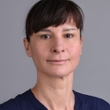
Mira Burri
University of Lucerne
Mira Burri is senior lecturer and managing director for internationalization at the Faculty of Law of the University of Lucerne since April 2016. In this role, she is responsible for advancing the internationalization strategy of the Faculty, expanding and improving our international academic program, our network of partner institutions and the mobility opportunities for Lucerne-based and incoming students. She will be also adding a new set of courses to the Faculty’s curriculum and teaching International Law of Contemporary Media, Digital Copyright, Internet Law andInternational Intellectual Property Law.
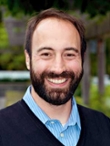
Ryan Calo
University of Washington School of Law
Ryan Calo is an assistant professor at the University of Washington School of Law. He is a faculty co-director (with Batya Friedman and Tadayoshi Kohno) of the University of Washington Tech Policy Lab, a unique, interdisciplinary research unit that spans the School of Law, Information School, and Department of Computer Science and Engineering. Professor Calo is an affiliate scholar at the Stanford Law School Center for Internet and Society (CIS), where he was a research fellow, and the Yale Law School Information Society Project (ISP). He serves on numerous advisory boards, including the University of California's People and Robots Initiative, the Electronic Frontier Foundation (EFF), the Electronic Privacy Information Center (EPIC), Without My Consent, and the Future of Privacy Forum. Professor Calo is a CoMotion Presidential Innovation Fellow for the class of 2015.
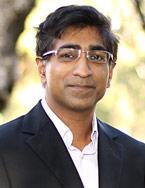
Anupam Chander
UC Davis School of Law
Anupam Chander is Director of the California International Law Center and Martin Luther King, Jr. Professor of Law at the University of California, Davis. A graduate of Harvard College and Yale Law School, he has been a visiting professor at Yale, Chicago, Stanford, and Cornell. The author of The Electronic Silk Road (Yale University Press), he has published widely in the nation’s leading law journals, including the Yale Law Journal, the NYU Law Review, and the California Law Review. He practiced law in New York and Hong Kong with Cleary, Gottlieb, Steen & Hamilton. He served on the executive council of the American Society of International Law and serves as a judge for the Stanford Junior International Faculty Forum. The recipient of Google Research Awards and an Andrew Mellon grant on the topic of surveillance, he is a member of the ICTSD/World Economic Forum E15 expert group on the digital economy and the World Economic Forum expert group on Internet fragmentation.
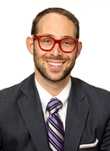
I. Glenn Cohen
Harvard
Professor Cohen is one of the world's leading experts on the intersection of bioethics (sometimes also called "medical ethics") and the law, as well as health law. He also teaches civil procedure. From Seoul to Krakow to Vancouver, Professor Cohen has spoken at legal, medical, and industry conferences around the world and his work has appeared in or been covered on PBS, NPR, ABC, CNN, MSNBC, Mother Jones, the New York Times, the New Republic, the Boston Globe, and several other media venues. Professor Cohen's current projects relate to big data, health information technologies, mobile health, reproduction/reproductive technology, research ethics, organ transplantation, rationing in law and medicine, health policy, FDA law, translational medicine, and to medical tourism – the travel of patients who are residents of one country, the "home country," to another country, the "destination country," for medical treatment.
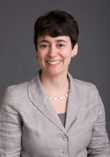
Julie E. Cohen
Georgetown University Law Center
Julie E. Cohen is Mark Claster Mamolen Professor of Law and Technology at the Georgetown University Law Center. She teaches and writes about copyright law, privacy law, and the governance of the networked information society. Professor Cohen is the author of Configuring the Networked Self (Yale University Press, 2012) and a co-author of Copyright in a Global Information Economy (Aspen Law & Business, 4th ed. 2015). She is a member of the Advisory Board of the Electronic Privacy Information Center.
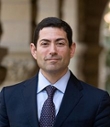
Mariano-Florentino Cuéllar
California Supreme Court
Associate Justice Mariano-Florentino Cuéllar began serving on the California Supreme Court in January 2015. He was nominated by Governor Jerry Brown, confirmed unanimously by the Commission on Judicial Appointments, and retained by the voters for a full term in November 2014. His previous career was in public service, university administration, and legal academia, with a focus on administrative, criminal, and international law.
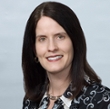
Laura DeNardis
American University
Dr. Laura DeNardis is a globally recognized Internet governance scholar and a Professor and Associate Dean in the School of Communication at American University in Washington, DC. Her books include The Global War for Internet Governance (Yale University Press 2014); Opening Standards: The Global Politics of Interoperability (MIT Press 2011); Protocol Politics: The Globalization of Internet Governance (MIT Press 2009); and Information Technology in Theory (Thompson 2007 with Pelin Aksoy). With a background in information engineering and a doctorate in Science and Technology Studies (STS), her research studies the social and political implications of Internet technical architecture and governance.

Mary Anne Franks
University of Miami School of Law
Dr. Mary Anne Franks is a law professor at the University of Miami School of Law and the Vice-President and Legislative and Tech Policy Director of the Cyber Civil Rights Initiative. She authored the first model criminal statute on “revenge porn,” the unauthorized disclosure of private, sexually explicit images, and helped draft the federal Intimate Privacy Protection Act, introduced in Congress in July 2016. She is the reporter for the Uniform Law Commission’s Committee on the Unauthorized Disclosure of Intimate Images and has advised both state and federal legislators on laws relating to sexual privacy, extortion, harassment, and threats. She also works with tech industry leaders, including Google, Facebook, Twitter, and Microsoft, on responses to online abuse and discrimination. She is the author of The Radicalized Constitution: The Rise of Fanaticism in American Law and Politics (forthcoming, Stanford University Press). She has published more than two dozen articles and essays in publications such as the California Law Review, the UCLA Law Review, and the Illinois Law Review, as well as numerous articles for the popular press, including the Atlantic, the Guardian, and the Huffington Post.
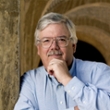
Henry T. Greely
Stanford Law School
Henry T. Greely is the Director of the Center for Law and the Biosciences at Stanford Law School. He specializes in the ethical, legal, and social implications of new biomedical technologies, particularly those related to neuroscience, genetics, or stem cell research. He frequently serves as an advisor on California, national, and international policy issues. He is chair of California’s Human Stem Cell Research Advisory Committee, a member of the Advisory Council of the NIH’s National Institute for General Medical Sciences, a member of the Committee on Science, Technology, and Law of the National Academies, a member of the Neuroscience Forum of the Institute of Medicine, and served from 2007-2010 as co-director of the Law and Neuroscience Project, funded by the MacArthur Foundation. Professor Greely chairs the steering committee for the Stanford Center for Biomedical Ethics and directs both the law school’s Center for Law and the Biosciences and the Stanford Program in Neuroscience and Society. In 2007 Professor Greely was elected a fellow of the American Association for the Advancement of Science.
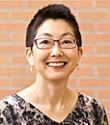
Lisa C. Ikemoto
UC Davis School of Law
Lisa C. Ikemoto teaches bioethics, health care law, public health law, reproductive rights, law & policy, and marital property. Her research areas include reproductive and genetic technology uses, health care disparities, and public health law. More specifically, she focuses on the ways that race and gender mediate access to and impacts of biomedical technology use and health care. Her recent work addresses reproductive tourism, the ways in which human gamete use links the fertility and biotechnology industries, and the privatizing effects of informed consent. Professor Ikemoto is a Bioethics Associate of the U.C. Davis Health System Bioethics Program, and a Faculty Associate of the U.C. Davis Center for Science and Innovation Studies.

Malavika Jayaram
Berkman Center for Internet and Society, Harvard University; Digital Asia Hub
Malavika works broadly in the areas of privacy, identity, free expression and internet policy in India. A practicing lawyer specializing in technology law, she has a particular interest in new media and the arts, and has advised start-ups, innovators, scientists, educational institutions and artists. A Fellow at the Centre for Internet and Society in Bangalore, India, she follows legislative and policy developments in the privacy and internet governance domains. For the last few years, she has been looking at the evolution of big data and e-governance projects in India – particularly the world’s largest biometric ID project – and their implications for identity, freedom, choice and informational self-determination. As a Fellow at the Berkman Center for Internet and Society at Harvard University, she will explore the business case for protecting privacy and free expression in India, in the context of big data projects and threats to internet freedom.
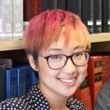
Sarah Jeong
Vice Media
Sarah Jeong is a journalist and lawyer. She is a contributing editor at Vice Motherboard who writes about technology, policy, and law. She is the author of The Internet of Garbage, and has bylines at the Atlantic, the Washington Post, the New York Times, the Verge, Forbes, the Guardian, Slate, WIRED, Vice Magazine, and Bitch Magazine. In 2017, she was named as one of Forbes’s 30 under 30 in the category of Media. Jeong graduated from Harvard Law School in 2014. As a law student, she edited the Harvard Journal of Law & Gender, and worked at the Electronic Frontier Foundation and at the Berkman Center for Internet & Society. She was a Poynter Fellow in Journalism at Yale for 2016, and also currently a fellow at the Internet Law & Policy Foundry.
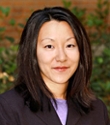
Elizabeth Joh
UC Davis School of Law
Elizabeth Joh is a professor at UC Davis School of Law. Professor Joh has written widely about policing, technology, and surveillance. Her scholarship has appeared in the Stanford Law Review, the California Law Review, the Northwestern University Law Review, the Harvard Law Review Forum, and the University of Pennsylvania Law Review Online. She has also provided commentary for the Los Angeles Times and the New York Times.
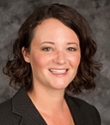
Margot E. Kaminski
The Ohio State University - Moritz College of Law
Professor Margot E. Kaminski researches and writes on law and technology. She is a graduate of Harvard University and Yale Law School. Professor Kaminski’s research and policy work focuses on media freedom, online civil liberties, international intellectual property law, legal issues raised by AI and robotics, and surveillance. She has written on law and technology for the popular press, and appeared on NPR’s On the Media and other radio shows and podcasts. Her article, “The Capture of International Intellectual Property Law Through the U.S. Trade Regime” was published in the Southern California Law Review; and her essay on domestic drone use, “Drone Federalism: Civilian Drones and the Things They Carry” was published in the California Law Review Circuit.
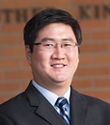
Peter Lee
UC Davis School of Law
Peter Lee is a professor at UC Davis School of Law. Professor Lee teaches and writes in the areas of patent law, innovation, and technology transfer. His current scholarship explores the institutional context of innovation as well as the intersection of intellectual property law and academic science. His recent works have appeared in The Yale Law Journal, California Law Review, Duke Law Journal, Michigan Law Review, and other leading journals. Professor Lee has received numerous awards for his scholarly work, including the UC Davis Chancellor’s Fellowship, the Samsung-Stanford Patent Prize, and inclusion in West/Thomson’s annual Intellectual Property Law Review. He has served as a Visiting Scholar at Melbourne Law School and speaks widely on intellectual property matters in the United States and abroad.
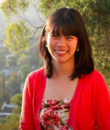
Stephanie M. Lee
BuzzFeed
Stephanie Lee is a senior technology reporter at BuzzFeed News, based in San Francisco. She writes about science, health, and technology, a sprawling beat that spans how technology (such as "big data," mobile devices, social media and tech giants like Google and Apple) is changing, improving, and intersecting with health care, wearables, and the so-called Internet of Things, medicine, genetics, biology, R&D, and agriculture. She started working at BuzzFeed in early 2015 after working at the San Francisco Chronicle, where she wrote about biotechnology, digital health, and public/environmental health in the Bay Area.

Thomas Lee
San Francisco Chronicle
Thomas Lee is a business columnist for the San Francisco Chronicle. He is the author of “Rebuilding Empires,” (Palgrave Macmillan/St. Martin’s Press), a book about the future of big box retail in the digital age. Lee has previously written for the Star Tribune (Minneapolis), St. Louis Post-Dispatch, Seattle Times and China Daily USA. He also served as bureau chief for two Internet news startups: MedCityNews.com and Xconomy.com. Lee is the recipient of the 2013 Gerald Loeb Award for Breaking News, the highest honor in business journalism. The Society of American Business Editors & Writers, Asian American Journalists Association, and Society of Professional Journalists in Minnesota have all recognized his work. Thomas’ book "Rebuilding Empires" was recently awarded a Bronze Medal for Business Commentary in the 2015 Axiom Business Book Awards, which seeks to recognize the best business books around the world.

Mark Lemley
Stanford Law School
Mark Lemley is the William H. Neukom Professor of Law at Stanford Law School and the Director of the Stanford Program in Law, Science and Technology. He teaches intellectual property, computer and internet law, patent law, trademark law, antitrust, and remedies. He is the author of seven books (all in multiple editions) and 153 articles on these and related subjects, including the two-volume treatise IP and Antitrust. His works have been cited more than 220 times by courts, including eleven United States Supreme Court opinions, and more than 14,000 times in books and law review articles, making him the most-cited scholar in IP law and one of the five most cited legal scholars of all time. He has published 9 of the 100 most-cited law review articles of the last twenty years, more than any other scholar, and a 2012 empirical study named him the most relevant law professor in the country.
His articles have appeared or will appear in 23 of the top 25 law reviews, in top economic journals such as the American Economic Review and the Review of Economics and Statistics, and in multiple peer- reviewed and specialty journals. They have been reprinted throughout the world, and translated into Chinese, Japanese, Korean, Spanish, Italian, and Danish. He has taught intellectual property law to federal and state judges at numerous Federal Judicial Center and ABA programs, has testified seven times before Congress, and has filed 45 amicus briefs before the U.S. Supreme Court, the California Supreme Court, and the federal circuit courts of appeals.
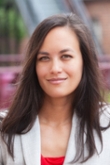
Nancy Leong
University of Denver - Sturm College of Law
Professor Leong graduated magna cum laude from Northwestern University before attending Stanford Law School, where she graduated with distinction and was a member of the Stanford Law Review. After earning her law degree, she clerked for Judge Kermit Lipez of the U.S. Court of Appeals for the First Circuit. Prior to joining the University of Denver faculty, Professor Leong was an Assistant Professor at the William & Mary School of Law, an Adjunct Professor at the Washington College of Law American University in Washington D.C., and a Visiting Scholar at Georgetown University Law Center. She also practiced First Amendment law with Americans United for Separation of Church and State.
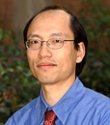
Albert C. Lin
UC Davis School of Law
Albert Lin is a Professor of Law at the UC Davis School of Law, where he specializes in environmental and natural resources law and also teaches evidence. His research interests include toxic torts and the relationship between technology, the environment, and law. Prior to joining the UC Davis faculty, Professor Lin was a trial attorney for the Environment and Natural Resources Division of the U.S. Department of Justice. A graduate of the UC Berkeley School of Law (Boalt Hall), he served as a law clerk to the Honorable Merrick Garland of the U.S. Court of Appeals for the D.C. Circuit and to the Honorable James Browning of the U.S. Court of Appeals for the Ninth Circuit. He is the author of Prometheus Reimagined: Technology, Environment, and Law in the 21st Century (Univ. of Michigan Press 2013) and the co-author of a widely used environmental law casebook.

Gary E. Marchant
Arizona State University - Sandra Day O'Connor College of Law
Gary Marchant’s research interests include the use of genetic information in environmental regulation, risk and the precautionary principle, legal aspects of personalized medicine, and regulation of emerging technologies such as nanotechnology, neuroscience and biotechnology. He teaches courses in Environmental Law, Law, Science & Technology, Genetics and the Law, Biotechnology: Science, Law and Policy, and Health Technologies and Innovation. He was named a Regents' Professor in 2011 and also is a professor in ASU’s School of Life Sciences, and is a Distinguished Sustainability Scientist in ASU’s Global Institute of Sustainability.
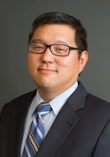
Paul Ohm
Georgetown University Law Center
Paul Ohm is a Professor of Law at the Georgetown University Law Center. He specializes in information privacy, computer crime law, intellectual property, and criminal procedure. He teaches courses in all of these topics and more and he serves as a faculty director for the Center on Privacy and Technology at Georgetown. In his work, Professor Ohm tries to build new interdisciplinary bridges between law and computer science. Much of his scholarship focuses on how evolving technology disrupts individual privacy. His article, Broken Promises of Privacy: Responding to the Surprising Failure of Anonymization, 57 UCLA Law Review 1701, has sparked an international debate about the need to reshape dramatically the way we regulate privacy. He is commonly cited and quoted by news organizations including the New York Times, Wall Street Journal, and NPR.
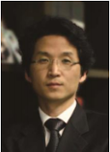
K.S. Park
Korea University
K.S. Park is a Professor of Law at Korea University and one of the founders of Open Net Korea. He has written academically and been active in internet, free speech, privacy, defamation, copyright, and international contracting. He has given expert testimonies in high profile free speech and privacy cases concerning Minerva, the internet real name verification law, the military’s seditious book blacklisting, the newspaper consumers’ boycott, and Park Jung-Geun, who was jailed for retweeting North Korean government tweets. He also has served as the executive director of the PSPD Law Center, a member of the National Media Council, and commissioner of the Korean Communication Standards Commission.

Arti K. Rai
Duke University School of Law
Arti Rai, Elvin R. Latty Professor of Law and co-Director, Duke Law Center for Innovation Policy, is an internationally recognized expert in intellectual property (IP) law, innovation policy, and administrative law. Rai has also taught at Harvard, Yale, and the University of Pennsylvania Law Schools. Rai's research on innovation law and policy in biotechnology, pharmaceuticals, and software has been funded by NIH, the Kauffman Foundation, and the Woodrow Wilson Center. Her numerous publications have appeared in both peer-reviewed journals and law reviews, including Science, the New England Journal of Medicine, the Journal of Legal Studies, Nature Biotechnology, and the Columbia, Georgetown, and Northwestern law reviews. She is the editor of Intellectual Property Law and Biotechnology: Critical Concepts (Edward Elgar, 2011) and the co-author of a 2012 Kauffman Foundation monograph on cost-effective health care innovation.

Brian Soucek
UC Davis School of Law
Brian Soucek is a professor at UC Davis School of Law. In addition to book chapters and articles in the philosophy of art, Soucek’s legal publications include work on asylum law, the due process values embodied in contemporary courthouse art, the quasi-precedential force of copying and pasting in unpublished appellate opinions, discrimination claims brought by plaintiffs perceived to be gay, and the intersection of federalism and equality concerns in United States v. Windsor. Uniting many of these projects is an overarching concern for the role appearances play throughout the law, particularly in two areas that Soucek teaches at UC Davis School of Law: antidiscrimination law and civil procedure. Prior to law school, Soucek taught for three years in the Humanities Collegiate Division and Philosophy Department at the University of Chicago, where he was Collegiate Assistant Professor and Co-Chair of the Society of Fellows in the Liberal Arts. After law school, he clerked for the late Mark R. Kravitz, United States District Judge for the District of Connecticut, and the Hon. Guido Calabresi of the Second Circuit Court of Appeals.
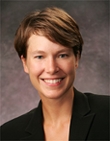
Molly Van Houweling
UC Berkeley Law
Molly Shaffer Van Houweling joined the Boalt faculty in fall 2005 from the University of Michigan Law School, where she had been an assistant professor since 2002. Van Houweling’s teaching and research interests include intellectual property, law and technology, property, and food law. She was a visiting professor at Boalt in 2004-05. Before joining the Michigan faculty, Van Houweling was president of Creative Commons, a nonprofit group that facilitates sharing of intellectual property. Van Houweling has also served as senior adviser to the president and board of directors of the Internet Corporation for Assigned Names and Numbers, the entity that oversees the Internet Domain Name System. She has been a research fellow at the Berkman Center for Internet & Society at Harvard Law School and at the Center for Internet and Society at Stanford Law School. Van Houweling clerked for Judge Michael Boudin of the U.S. Court of Appeals for the 1st Circuit and Justice David H. Souter of the U.S. Supreme Court.

Ben Wizner
ACLU
Ben Wizner is the director of the ACLU’s Speech, Privacy, and Technology Project. For nearly 15 years, he has worked at the intersection of civil liberties and national security, litigating numerous cases involving airport security policies, government watch lists, surveillance practices, targeted killing, and torture. He appears regularly in the global media, has testified before Congress, and is an adjunct professor at New York University School of Law. Since July of 2013, he has been the principal legal advisor to NSA whistleblower Edward Snowden. Ben is a graduate of Harvard College and New York University School of Law and was a law clerk to the Hon. Stephen Reinhardt of the U.S. Court of Appeals for the Ninth Circuit.

